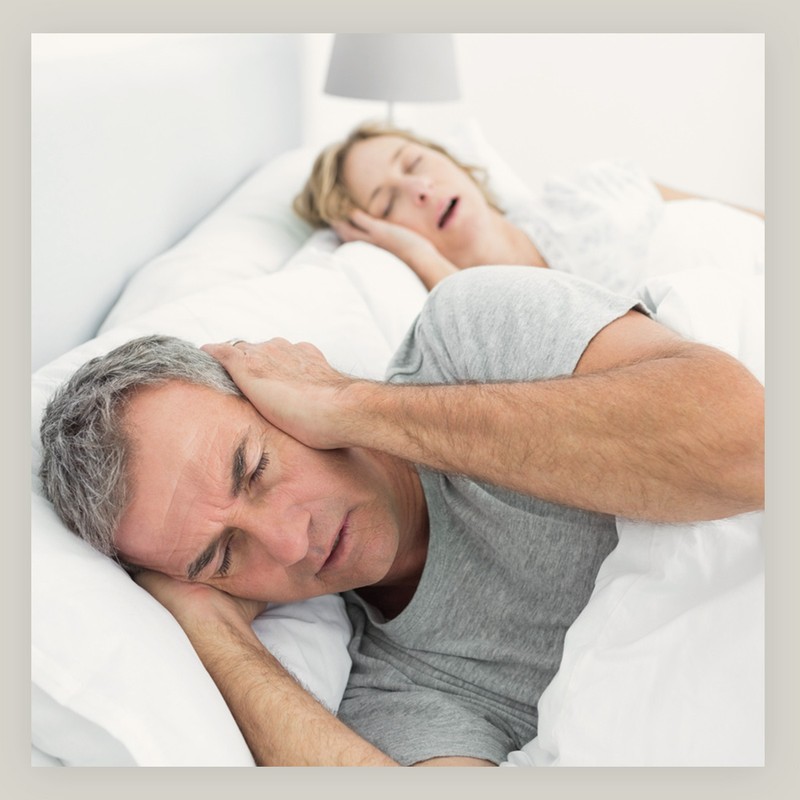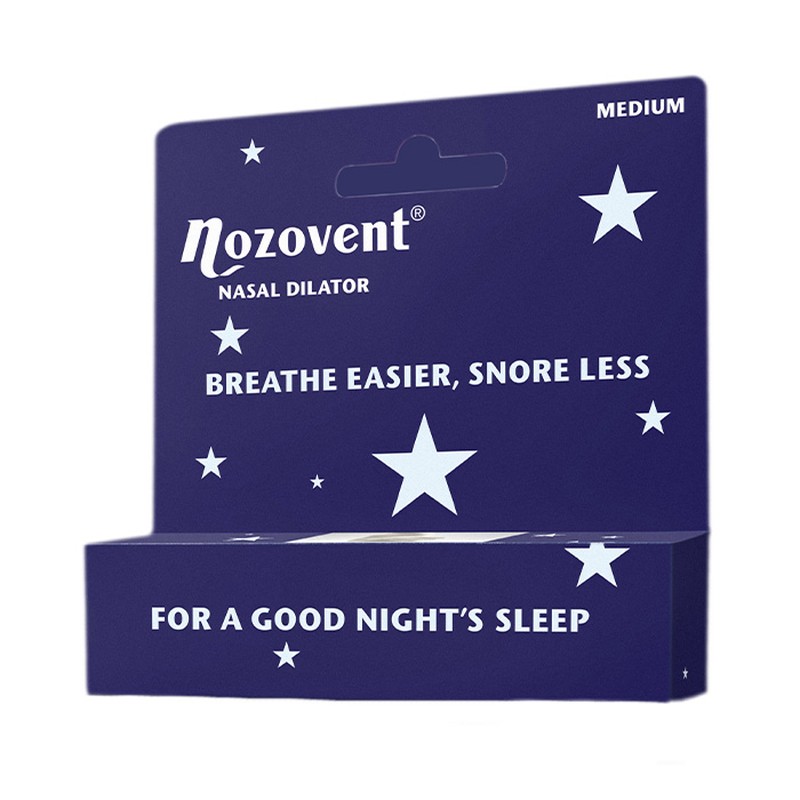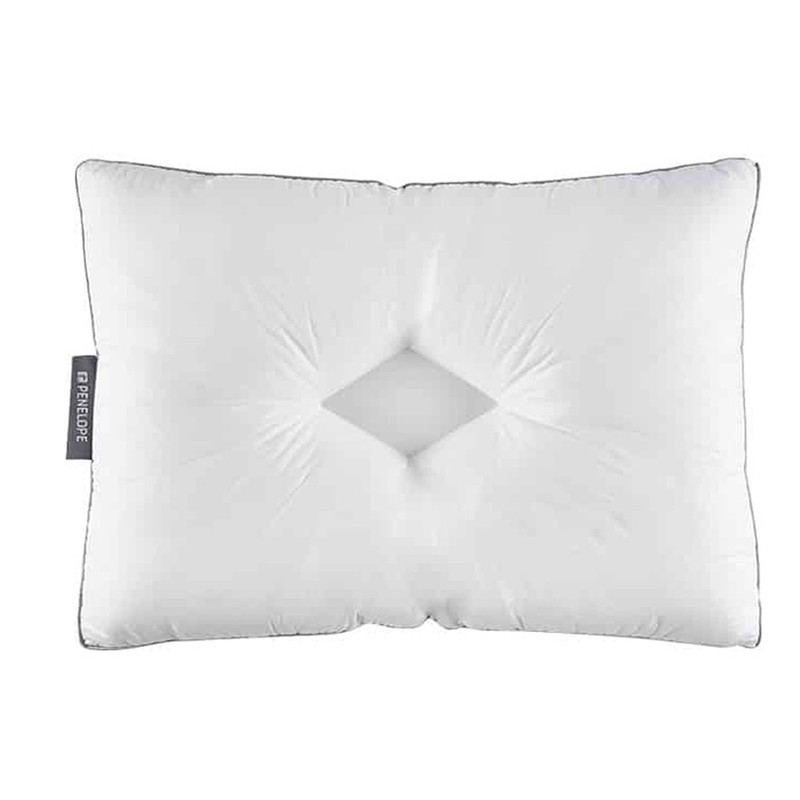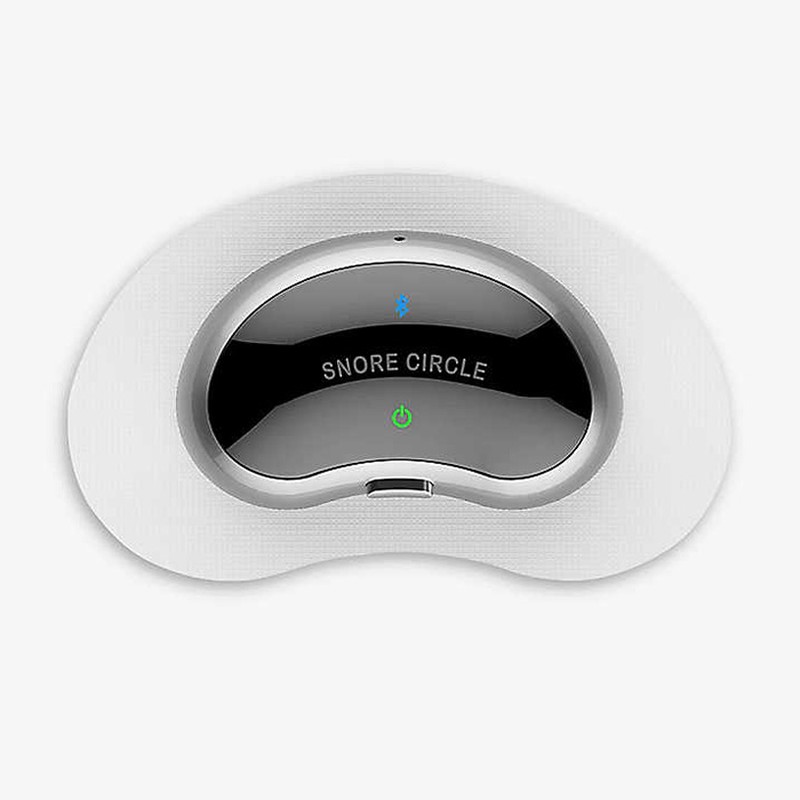
Snoring SOS: What To Know & What You Can Do About It
Firstly, Men Don’t Necessarily Snore More Than Women
When we think of a snorer, a usual suspect comes to mind: a man. The truth of the matter is women are just as susceptible to snoring, especially with age. In one recent study, around 30% of women reported that they snore regularly, compared to 38% of men, and at certain times in your life, such as during the menopause and the years post-menopause, you may even snore more than your other half. The menopause can reduce muscle tone in the throat, leading to snoring, which is coupled by the fact your hormones are shifting, which can affect sleep and in turn trigger snoring. Research shows that by the time women have reached the age of 70, they’re just as likely to be snorers as men of the same age. Whether it’s you or your other half snoring, either way it’ll affect the quality of your sleep, which puts you at a higher risk of morbid diseases. Research shows snorers don’t get adequate amounts of ‘stage 4’ sleep, the deepest, most regenerative sleep, which takes an hour to get into. If you’re constantly waking yourself up with snoring – or being woken up by a snorer – you’ll never reach this stage of sleep.
Consider Losing A Few Pounds
It’s common knowledge that snoring is more prevalent if you’re overweight. “Excessive weight, particularly around your neck, can narrow your airways and make you more likely to snore,” says leading snoring specialist Dr Nathan Holt. Losing even a small amount of weight can make a real difference. Dr Holt also explains that those with a higher BMI are also more likely to develop sleep apnoea. “Extra weight around the middle and chest can exacerbate snoring and sleep apnoea. This is because the fat in these areas pushes against the diaphragm and compresses the ribs, effectively shrinking the volume of the lungs. In fact, statistics suggest obesity is the most significant risk factor in the development of sleep apnoea, with 70% of patients experiencing sleep apnoea being obese.”
Exercise Your Mouth Muscles
Whether it’s you or your other half that’s snoring, certain exercises done daily can help, says Dr Nerina Ramlakhan, renowned physiologist and sleep expert. “Start by extending your tongue out straight as far as it will go, trying to touch the tip of your tongue to the end of your nose, and then to your chin. Then move it to touch your left then right cheek – repeat the four points quickly ten times. Also try humming – grip the tip of your tongue gently between your teeth. Make a humming sound, starting deep and then increase in frequency until it’s as high-pitched as you can make it; repeat ten times. Finally, try snorting inhalations. With your mouth closed, breathe in sharply through your nose (you may snort a bit) – do this rapidly in four sets of five repetitions, with a five-second break between each set.” Nerina recommends spending five minutes doing each of these exercises in turn every day, aiming to complete them as quickly as possible.
Change Your Sleeping Position
“How you sleep can have a profound effect on your chances of snoring,” explains Samantha Briscoe, lead clinical physiologist at The London Bridge Sleep Centre. “Sleep produces muscular relaxation, which includes the muscles of the throat and airways, causing narrowing of the airways, which promotes soft tissue vibration. Snoring is often worse when you sleep supine, i.e., on your back, as the tongue and tissues move backwards with gravity, further narrowing the airway. Sleeping on your side can lessen snoring,” she says.
Ditch The Nightcap
A glass of wine may help you relax after a busy day, but alcohol’s sedative effect relaxes your throat and jaw muscles, which can collapse onto your airway and restrict airflow, which causes snoring. Alcohol can also have a knock-on effect of disrupting normal sleep patterns, making you more tired the following day, a factor that’s also linked to weight gain – another snoring trigger. In fact, studies show that if you sleep for five-and-a-half hours per night as opposed to eight hours, on average you’ll eat 22% more the following day. Over five days of not sleeping well, this equates to an extra day’s worth of calories.
Spring Clean Your Bedroom
Experts believe a lot of snoring is caused by a blocked nose, often due to a low-level allergy to house dust mites. “There’s no doubt sleep quality is linked to air quality,” stresses Dr Holt. “Anything that causes an inflamed nose can make breathing harder and snoring worse, so things such as hay fever and dust and pet allergies can all exacerbate snoring. Studies also show a relationship between long-term exposure to traffic and outdoor pollutants and sleep disorders, including sleep apnoea,” he says. Dust mites accumulate in pillows, so consider replacing them regularly or buying special anti-allergy bed linen. Also consider keeping pets out of the bedroom as animal dander is a common irritant. Dr Holt says sleeping in a cooler environment can also help, so experiment with keeping your window open to allow for fresh air throughout the night. “This could be related to the dilation of the upper airway muscles at different temperatures,” he adds.
Download An App
A snore-tracking app such as Snorelab will allow you to record your nightly habits, says Nerina. As well as assessing how much you snore on a nightly basis, tracking apps can be a helpful way to monitor changes if you’ve made a conscious effort to lose weight, for example. “Also consider downloading an app that plays white noise, which can act as a buffer to the sound of your partner snoring. Even using something like a fan can help,” she advises.
Know When To Seek Help
Aside from affecting your relationship, snoring can also be a sign of obstructive sleep apnoea. “This is when the blockage of air is sufficient to wake you up many times (sometimes over 100 times a night), which you may be unaware of,” says Dr Holt. “This will make you sleepy the following day with a lack of concentration.” More worryingly, studies also show it increases blood pressure and the risk of stroke. If you wake yourself up in the night with a choking or gasping sound, you could be suffering from sleep apnoea. The condition is treated on the NHS, so speak to your GP, who can refer you to a sleep clinic. An ENT specialist can also help you determine the best treatment for your snoring habits. These can range from a straightening of the nasal septum and opening of the nasal airway, tonsillectomy or adenoidectomy to remove enlarged tonsils or adenoids. In selected cases, palatoplasty surgery can address issues of the soft palate. CPAP (continuous positive airway pressure) treatment, where oxygen is delivered via a mask at night, tends to be used for patients with sleep apnoea.
Keep An Eye Out For The Latest Innovations
“The impact snoring can have on your life can be significant and treatment can be life-changing,” says Dr Holt. “Your GP may suggest a device to wear in your mouth to bring your tongue forward when you sleep, while sprays can also help by reducing swelling in your nose.” However, when it comes to new innovations, Somnilase is the treatment to keep on your radar. “Somnilase is such a fantastic treatment,” Dr Holt told us. “It strengthens the structure of the soft palate and uvula, making it more stable during breathing and with greater resistance to air flow during the night. It’s a non-surgical treatment which utilises laser technology and takes just 15 minutes – it’s pain-free and you can see lasting results from the following day.” The treatment isn’t currently available on the NHS but, done privately, it’ll cost around £550.
For more information visit HCAHealthcare.co.uk, NovusMedicalUK.com, DrNerinaWebinars.com and BritishSnoring.co.uk.
DISCLAIMER: Features published by SheerLuxe are not intended to treat, diagnose, cure or prevent any disease. Always seek the advice of your GP or another qualified healthcare provider for any questions you have regarding a medical condition, and before undertaking any diet, exercise or other health-related programme.





DISCLAIMER: We endeavour to always credit the correct original source of every image we use. If you think a credit may be incorrect, please contact us at info@sheerluxe.com.

